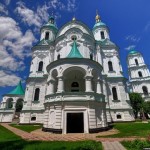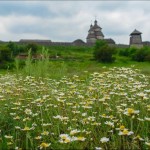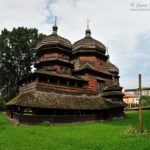Slightly over 28 million people worldwide speak Ukrainian, a language that holds a profound historical significance deeply intertwined with the identity and culture of Ukraine. In this article, we delve into the compelling journey of the Ukrainian language, exploring its rich history and examining its remarkable resilience in the face of numerous challenges.
So put away your social media-ing, online shopping, online gaming (BTW….speaking of gaming…for those seeking some excitement and entertainment, don’t miss out on the enticing Grande Vegas no deposit bonus – this bonus is one of the many ways to add extra thrill to your online gaming adventures) and such and let’s look into this fascinating language.
Brief Overview of the Ukrainian Language’s Historical Significance
With roots tracing back over a millennium to the medieval state of Kyivan Rus, the Ukrainian language, one of the East Slavic languages, has played a central role in shaping Ukraine’s cultural and national identity.
Ukrainian literature, including works by prominent figures like Taras Shevchenko, Ivan Franko, and Lesya Ukrainka, preserved the language and contributed significantly to the nation’s heritage. The Ukrainian language symbolizes the enduring spirit of a people determined to protect their roots.
In 1991, Ukraine’s declaration of independence from the Soviet Union marked a crucial juncture in the history of Ukraine. As the official language of the newly sovereign nation since 1989, Ukrainian underwent a significant resurgence in importance.
Challenges Faced
The Ukrainian language has confronted a series of challenges throughout its history, including the legacy of Soviet-era language policies, the influence of neighboring languages and globalization, and modern challenges presented by the digital age.
Soviet-Era Language Policies and Their Impact
Throughout the Soviet era, the Ukrainian language endured a deliberate suppression campaign within the framework of broader Russification policies. Russian was elevated to prominence in government, education, and media, while Ukrainian was relegated to a secondary role.
The consequences of these policies were deeply felt, particularly among younger generations. Many Ukrainians of that period were compelled to use Russian in official contexts, contributing to a diminishing presence of the Ukrainian language in their daily lives.
Influence of Neighboring Languages and Globalization
Ukraine’s proximity to countries where Russian is spoken has also posed linguistic challenges. The influence of Russian and other neighboring languages has been substantial. Globalization and the dominance of English as a global lingua franca have also created pressure on many languages, including Ukrainian, to adapt and compete on the international stage.
Digital Challenges
In the current digital age, the Ukrainian language faces unique challenges. While providing opportunities for global communication and information-sharing, the internet can also be a battleground for language dominance. English predominates on many popular websites and social media platforms, which can impact the visibility and use of Ukrainian online.
Resilience Factors
The exceptional resilience of the Ukrainian language can be attributed to a combination of concerted efforts to preserve and promote it, the cultural significance and pride it holds, and the active engagement of the Ukrainian diaspora in language preservation.
Language Revitalization Initiatives
Within Ukraine, a range of initiatives have been launched to safeguard and cultivate the Ukrainian language. Government initiatives, non-governmental organizations (NGOs), and cultural institutions have been actively engaged in these endeavors. These programs include language courses, publications, and public awareness campaigns, all geared toward fostering the integration of Ukrainian into everyday life.
Role of Education in Preserving the Language
Ukrainian is the primary language for instruction in schools, and a concerted drive has been underway to improve the quality and accessibility of Ukrainian-language education. Also, institutions dedicated to studying and propagating Ukrainian language and culture, including universities and research centers, contribute significantly to these preservation efforts.
The Cultural Significance and Proud Heritage
The Ukrainian language is at the very core of Ukrainian identity and heritage. Ukrainians hold a profound reverence for their language, recognizing its intimate connection to their history, literature, and artistic expressions. It is an emblem of cultural perpetuity and tenacity, nurturing a profound sense of unity among the Ukrainian people.
The Ukrainian Diaspora’s Contribution to Language Preservation
Beyond Ukraine’s borders, the Ukrainian diaspora has emerged as a significant force in safeguarding the language. Ukrainian communities scattered across the globe have diligently held on to their linguistic heritage, actively contributing to the language’s continued vitality. Through cultural celebrations, language schools, and media platforms, the Ukrainian diaspora has not only upheld the language but has also propelled its global dissemination.
Current Status of the Ukrainian Language
Official Language Status and Usage
Elevating Ukrainian as the national language has gradually entrenched its use in government affairs, legal documents, and public administration. However, the extent to which Ukrainian is used in daily life varies across regions, with some areas still maintaining a stronger presence of Russian.
The Influence of Media and Technology
Ukrainian-language television, radio, and newspapers have risen to prominence, amplifying its visibility. Furthermore, the internet and social media platforms have emerged as vibrant spaces where the Ukrainian language flourishes, enabling Ukrainians to connect, converse, and disseminate content in their mother tongue.
As we celebrate the resilience and thriving of the Ukrainian language, we encourage ongoing efforts to support and promote it. This includes fostering language education, nurturing cultural pride, and embracing linguistic diversity. The Ukrainian language’s journey proves that native languages can thrive in a changing world, and it continues to inspire us to celebrate and protect linguistic heritage everywhere.
Tags: No tags
You might also like:
<< Ukraine Unveiled: A Traveler’s Guide to Must-See Attractions







